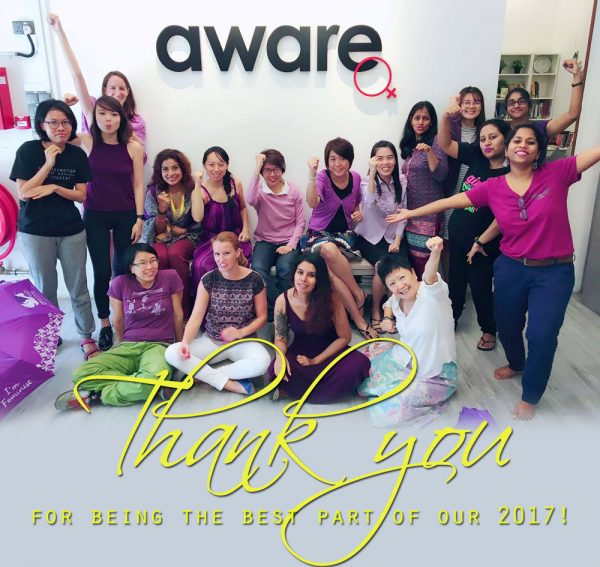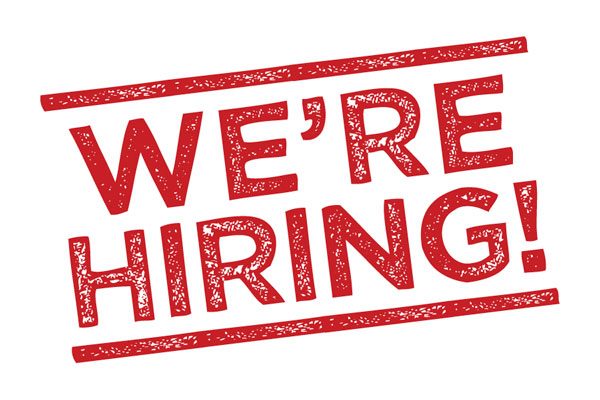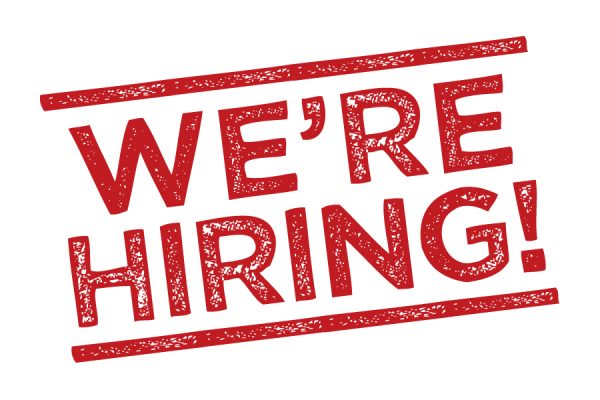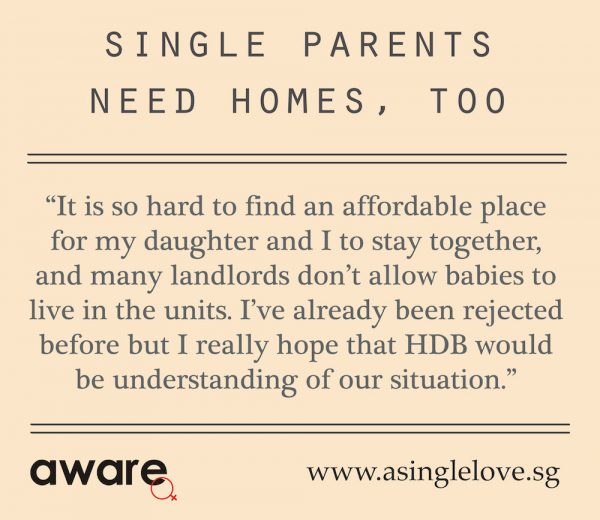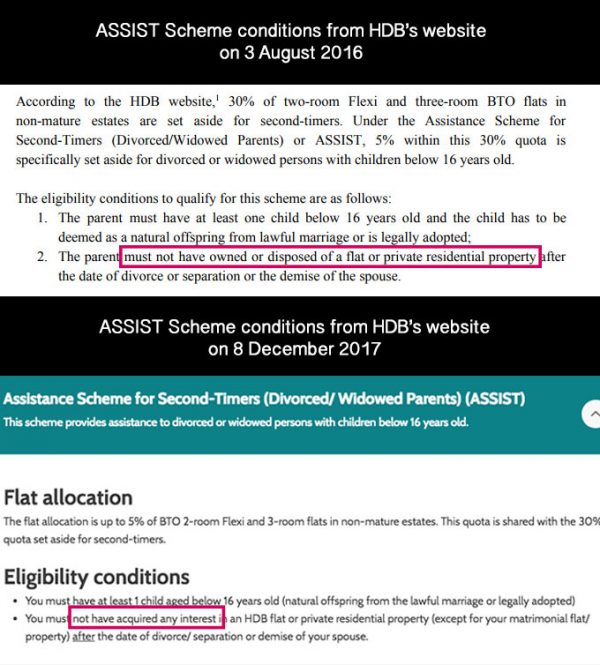It’s been a massive year for AWARE – and our supporters have been the best part of it! We brought Singapore’s gender equality issues to the international stage, mobilised impressive community support for single parents’ issues, and embarked on initiatives that will bring our services to all women. And we have our sights set on much more in 2018. Here’s what we’ve done this year.
The police announced that we’ll work with them on a training video on survivors’ experiences of sexual violence. We also contributed to #metoo, which saw more survivors calling SACC for support.
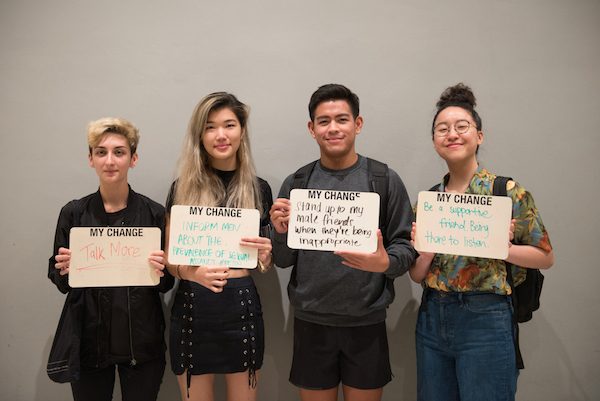
The online #metoo movement caused ripples on social media – and generated a spike in calls to our Sexual Assault Care Centre (SACC). Survivors bravely contributed their stories not only online, but also through our dialogue, #metoo, #nowwhat, which called for community action to end sexual violence. SACC was kept busy throughout the year: the police announced that we will be closely collaborating with them for a new training video to give officers a better idea of survivors’ experiences. Our community events, persistent media engagement on sexual violence, and research on the technology-use in sexual violence also drew public attention to the issue. We were delighted that support for the repeal of marital rape was affirmed by Parliamentarians during a debate on aspirations of women in Singapore. We continually engaged with MPs and parliamentarians through awareness-raising on women’s issues and look forward to more open discussions next year.
Single parents led a movement to press for policy change through not one, but two petitions.
Over 8,000 supporters signed a public petition and 7 single parents led a parliamentary petition urging changes to single parents’ access to housing. We’re grateful to the single parents who have donated their time, effort and stories to keep this conversation alive. We’ve seen – through how our research, comics, stories, videos, and dialogue sessions were received – that society is ready to demand for changes to discriminatory policies against single parents. Small steps should also be celebrated: a recommendation raised in our report led to a change where HDB relaxed the conditions of their ASSIST scheme for single parents. Our advocacy on housing also led to more discussions in Parliament on single parents’ issues. With the support we’ve gotten, we’re nowhere near giving up!
We shaped UN gender equality experts’ recommendations for the Singapore government.
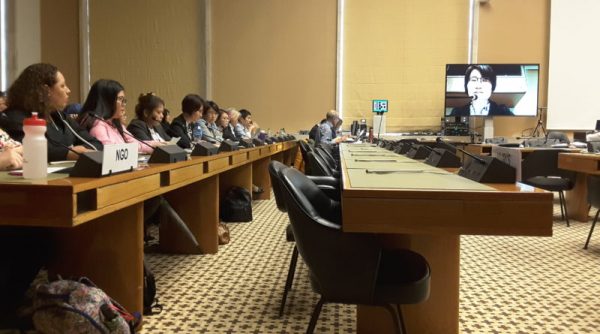
A big win on the international stage: our NGO coalition report on women’s rights in Singapore heavily shaped the CEDAW Committee’s concluding observations for the Singapore government. The Committee’s recommendations were issued after a review process in Geneva where NGOs, including AWARE, engaged UN’s gender equality experts on local issues concerning violence survivors, older women, domestic workers, LBTQ women and sex workers. It was an exciting journey – and we look forward to stronger bonds with fellow human rights’ groups in the coming years!
The Women’s Helpline has been strengthened to better support ALL women.
Generous contributions from our kind donors mean that next year onwards, our 25-year-old Women’s Helpline will actively reach out to more lower-income women, older women, ethnic minority women and young professionals! The Women’s Helpline also has a new look – and a new number – so now you can refer the women in your lives to 1800 777 5555 if they need support.
300 lower-income women empowered through back-to-work support.
Hundreds of women were supported through Building Dreams – our collaboration with Daughters Of Tomorrow (DOT) which provided women with back-to-work support, skills development, support groups, counselling and employment bridging – and through the Eldercare Programme with DOT and JP Morgan – which trained and certified women as professional caregivers in the eldercare industry. We’re truly excited to further these collaborations that economically empower more lower-income women in 2018.
We helmed numerous conversations calling for an end to gender-based violence.
Our survey on boys’ experiences of bullying and violence brought a perspective not often touched upon in conversations about gender-based violence. The year-end Let’s Unite campaign called for an end to violence against women, with dozens of supporters from organisations and groups, adding to change through collective action. Watch out for more events in the new year!
We called for changes to laws, policies and practices to protect Muslim women and sexual violence survivors.
We brought attention to the legal rights of sexual violence survivors through recommendations for the Criminal Procedure Code, and urged changes to the Administration of Muslim Law Act so as to robustly promote gender equality in Muslim law. Our push for greater state support for older women and their caregivers in our Budget recommendations was reiterated through the CEDAW Committee’s recommendations for the Singapore government as well! Keep tuning in to learn more about how we work with policy-makers.
Over 2,000 professionals in Singapore trained to address harassment, unconscious bias and diversity and inclusion in the workplace.
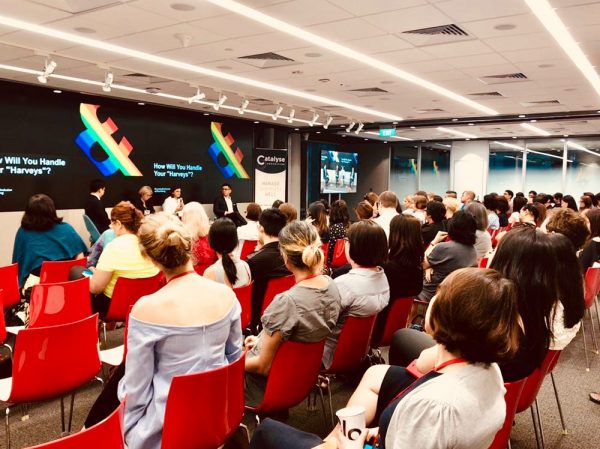
Catalyse Consulting brought 55 workshops and panel discussions to educational institutions and corporates across all industries. We are happy to support and train employers to address workplace harassment, and adopt more inclusive practices in the workplace. We’re proud to have worked with our partners Bloomberg and TSMP Law Corporation to bring these conversations to the corporate world.
We supported and enabled emerging gender equality groups in Singapore through Power: Women’s Fund for Change!
Singapore’s very first national women’s rights fund, the Power Fund, was launched this year to financially support emerging organisations and new initiatives that work with marginalised women and girls. We’re proud to have enabled stronger participation by up-and-coming women’s rights’ groups within civil society – and so excited to share more details about the recipients of this fund! Look out for more information in 2018.
Through all this, you’ve been behind us. A huge thank you for being a part of our journey. Only with community action – and your time, effort and donations – can we make real change for a fairer, more compassionate society.
So from all of us at AWARE, happy holidays and have a fantastic start to 2018!
